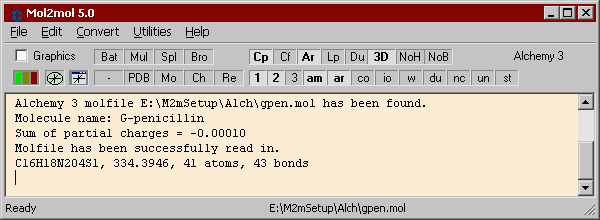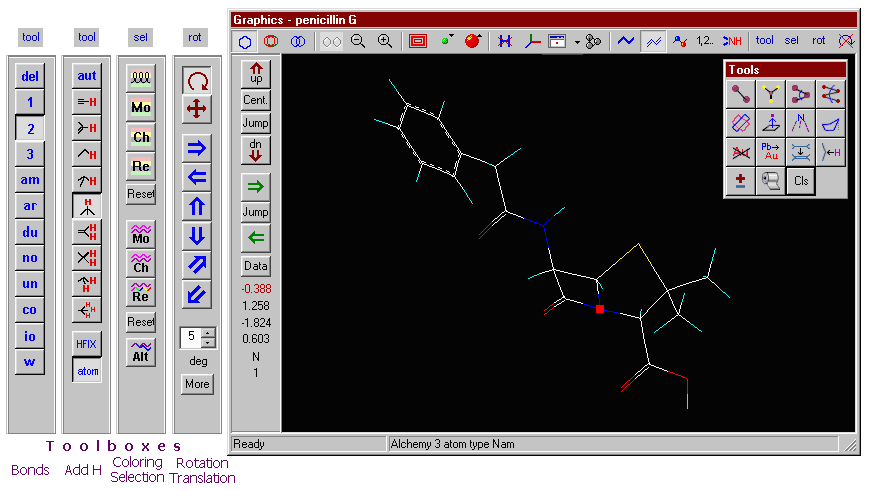 Mol2Mol 5.6
Mol2Mol 5.6

More than two decades ago, at the end of the 80th, the different molecular modelling programs have started widely to spread. These programs use different file formats to hold the coordinate and atomic data, and each format follows unique syntax rules, which prevents the direct transfer of the molecules between the different applications. This was a serious drawback of the early programs, but even today there is a need for the transformation of molecule files. Therefore I started to develop Mol2Mol several years ago, which is now available from ShareIt!.
The current version of Mol2Mol recognizes, reads and writes about 40 different file formats. It contains a simple graphic display module to inspect the currently loaded molecule. It possesses some chemical intelligence for recognizing detailed atom types, hybridization and chemical environments, which is necessary for converting simpler formats (like X-ray crystallographic files) to more advanced ones, or when hydrogen atoms are automatically to be added to the heavy atoms. Problematic files can be corrected within Mol2mol or as ASCII files by calling directly your favourite text editor.
Supported file formats:
|
|
| Application: | Read | Write |
|---|---|---|
| Pluto | ||
| PLT | ||
| WIMP | ||
| Schakal | ||
| ChemWindow mol | ||
| UltraMol | ||
| Chemdraw ct | ||
| POV-Ray |


Mol2Mol is more than just a simple conversion system. It has a number of useful utilities:
- Calculation of basic geometrical data: distances, angles, dihedral angles;
- Calculation of atom pyramidalities, angle of rings, distances from least square planes, ring puckerings;
- Changing of bond types, atom types;
- Add or delete hydrogens, structural waters;
- Add hydrogens in pH dependent mode;
- Slicing of biopolymers or multiple files to individual molecules;
- Batch or many-to-many conversion;
- Merging of individual simple files to multiple ones;
- Conversion of multiple structural files;
- Conversion of proteins to "backbone molecules", Ramachandran plot;
- Superimpoising and rms comparison of molecules;
- Checking of peptide backbone geometry, adding CH3, CH2 centroid pseudo atoms;
- Manual editing of problematic files... and many others.
To know more about Mol2Mol:
- visit its homepage
- There is a separate page for those who are interested in producing high-quality POV-Ray images of molecules with the aid of Mol2Mol.